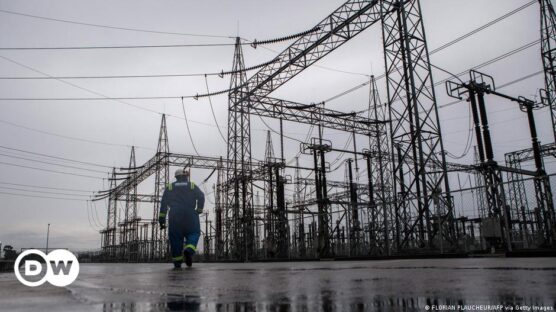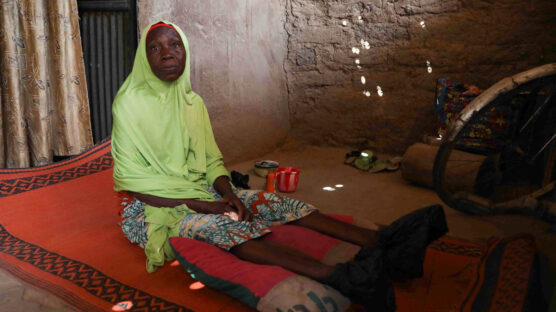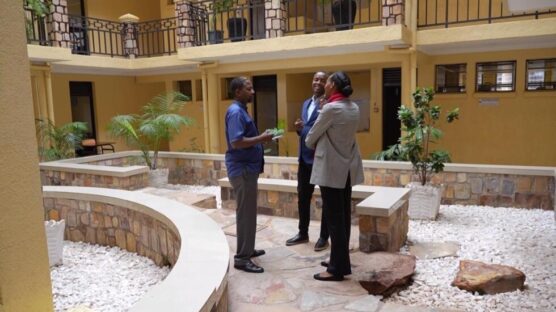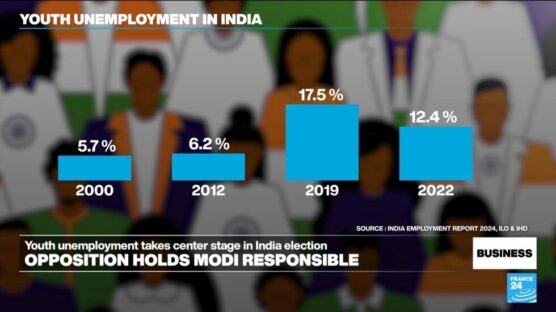Nigerian states slash dependence on federal allocation by 60 percent
By OakTV
24 August 2017 |
8:00 am
Nigerian states slash dependence on federal allocation by 60 percent.
In this article
Related
Related
30 Mar
A new UN report detailed different types of gang violence which have intensified this year. Gangs have taken over much of the capital, and staged an insurrection to overthrow Prime Minister Ariel Henry.
30 Mar
French Prime Minister Gabriel Attal signals a further tightening of unemployment benefits as France seeks to reduce an unexpectedly large budget deficit. Meanwhile, the government rules out new taxes, despite calls from French lawmakers to tax corporate windfalls and share buybacks. We take a closer look in this edition.
30 Mar
Members of St. Francis Catholic Church reenact the Stations of the Cross, suffering and death of Jesus during Holy Friday in Ikeja, Lagos, Nigeria.
10 Apr
Nigeria has begun the rollout of the MenFive vaccine in high-risk areas, securing millions of doses to protect children from all five strains of meningitis. The potentially fatal disease poses a grave threat to young children globally, with sub-Saharan Africa being particularly vulnerable to it.
13 Apr
Nigeria's government says the rise will only affect 1.5 million consumers, mostly manufacturers. But analysts believe the hike will lead to higher inflation and result in job losses and closures of businesses.
12 Apr
A decade on, the world has largely forgotten about the Chibok girls, who were kidnapped by Nigeria's Boko Haram Islamist militants. But for victims and their families, like Solomon Maina, who is still waiting for news about his daughter, the tragedy is ongoing.
Latest
25 mins ago
Tiger Woods is set to receive an equity bonus in the region of $100 million for staying on the PGA Tour rather than moving to LIV Golf. 193 of the tour’s golfers will receive the payment, which is funded by the Strategic Sports Group, which has invested $1.5 billion into the Tour.
37 mins ago
Videos falsely claiming to show Israel invading or bombing the Gazan city of Rafah have gone viral on X this week. Also, what do we know about Israel's planned invasion of Rafah, based on satellite images? We tell you more in this edition of Truth or Fake.
56 mins ago
Eye on Africa tours the Hope Hostel in Kigali. It's one of the lodgings prepared by Rwanda to take in migrants deported from Britain, the first of whom could arrive in a few months' time under a controversial policy.
57 mins ago
After years of a successful sporting career, Nigeria’s four-time kickboxing gold medalist, Jibrin Inuwa Baba, pays homage to his town Kano where he meets his coach at the Dambe boxing arena. His hope is to see young athletes equally succeed in their boxing career.
2 hours ago
As India's opposition leader Rahul Gandhi claims on the campaign trail that Prime Minister Narendra Modi has made the country into a "centre of unemployment", we look at the situation that young Indians face on the job market. Also in this edition, the US will see its first high-speed rail line in 2028, when commuters will be able to travel from Los Angeles to Las Vegas in just over two hours.
×

Get the latest news delivered straight to your inbox every day of the week. Stay informed with the Guardian’s leading coverage of Nigerian and world news, business, technology and sports.


















0 Comments
We will review and take appropriate action.